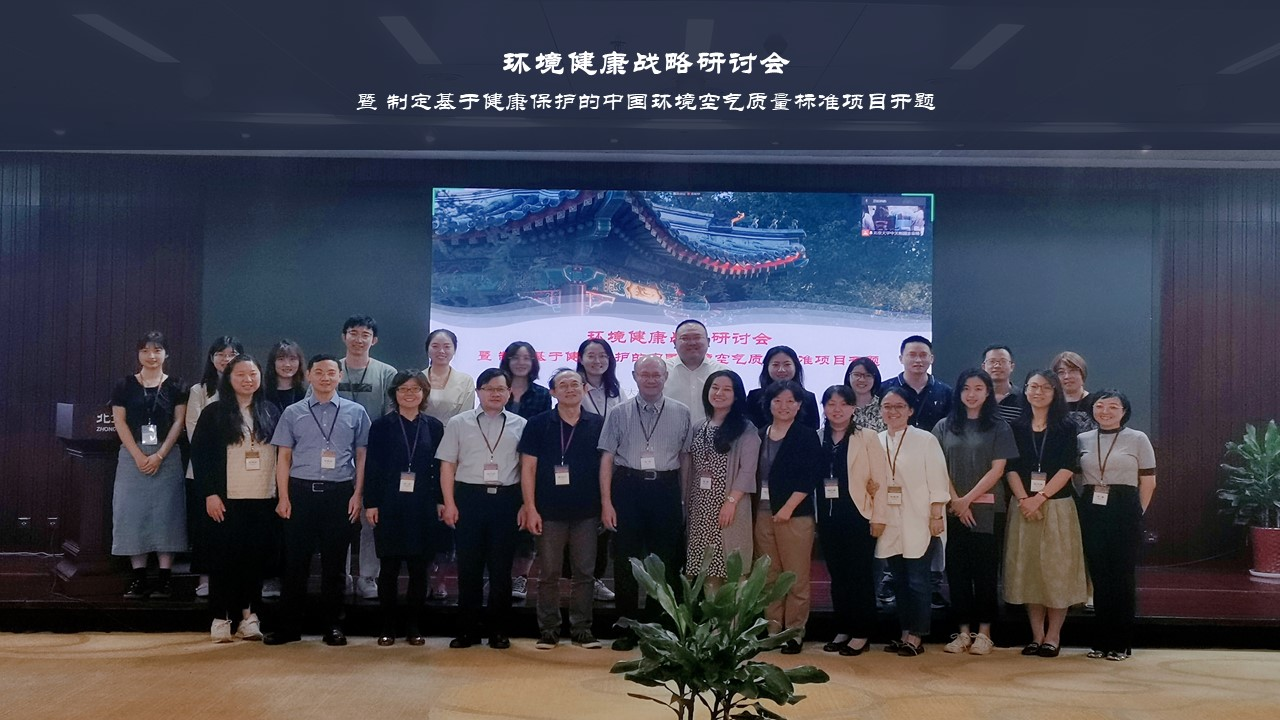Although impressive and concerted improvements have been made since China implemented the National Air Pollution Control Action Plan in 2013, exposure to ambient pollution remains as one of the most harmful contributors to the public health in the country and the government still needs to put great effort to reduce mortality due to air pollution, aligning with 2030 and 2060 ambitious climate mitigation goals of China.
It is meaningful and important to use public health protection as a joint indicator to identify measures and policies that can achieve the most benefits through air pollution improvement and climate change mitigation. This requires integrated efforts from the communities in China working on air pollution control, climate change mitigation, and public health, which are usually separated and lack of communication.
In 2020, the Environmental Health Study team of Peking University has taken early steps to establish a platform to meet the gap of communication and identified the major challenges and further research needs for an integrated research strategy for science-based and well-designed policy-making that will generate co-benefits of air pollution control and climate change mitigation and synergies for protecting public health through implementing the project Integrating Air Quality Protection and Carbon Emission Reduction to Protect Public Health funded by Energy Foundation China. Among several working tasks, promoting the revision and refinement of National Ambient Air Quality Standards (NAAQS) was identified and selected as the priority for near term.
Peking University team continues to build the AiR-Climate-Health (ARCH) Integrated Study and Exchange Platform into a long-standing non-profit and voluntary partnership composed of academic research institutions, policymaking supporting institutions, think tanks, and NGOs with strong strengths in air, climate, and health-related fields.
On September 15th - 16th, 2021, Peking University and Energy Foundation (China) jointly held a seminar themed on environmental health strategy and the inception meeting for the flagship research program on " Development of health-oriented standards of ambient air quality in China " in Beijing. As an umbrella project, ARCH undertook the organization of the meeting and co-ordination of sub-projects.

The conference convened experts from top scientific research institutions and decision-making support units in the fields of air, climate, health, etc., to discuss the establishment and management of the flagship program and research ideas of relevant important research topics through hybrid in peroson and virtual meeting approach.
Professor Zhu Tong, Dean of the College of Environmental Science and Engineering of Peking University, and Ms. Li Jie, Vice President of Energy Foundation (China) made opening remarks and highlighted the needs and importance of conducting cutting-edge and integrated scientific research for preparation of revising and refining the NAAQS. The conference invited Academician Wu Fengchang of the Chinese Academy of Environmental Sciences, Academician Tao Shu of the College of Urban and Environmental Sciences of Peking University, and Director Shi Xiaoming of the Environmental Institute of the Chinese Center for Disease Control and Prevention to give keynote speeches.

Keynote Speakers
The participating experts also exchanged views on the " Air Quality Guidelines (AQGs 2021)" to be released by the World Health Organization (WHO) on 23 September 2021, and pointed out that the release of the new AQGs will play a leading role for the air quality standards development and revision globally, including China. On one hand, the AQGs and its development methods can provide reference for the research and formulation of air quality standards. On the other hand, it also puts forward higher requirements for related scientific research and policy analysis.
This successful gathering and its output will also enhance the consensus of developing health-oriented NAAQS among key stakeholders and strengthen the efforts to drive the coordinated governance of air pollution and climate change with health.
